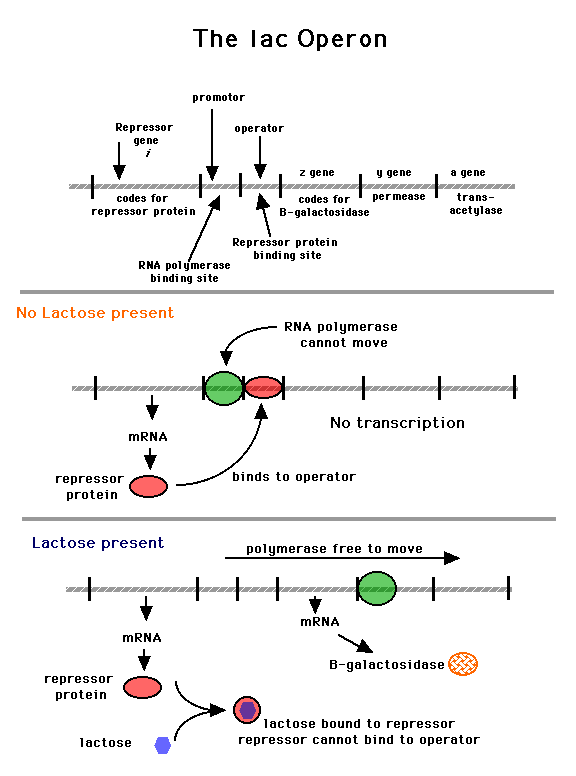What is the difference between prokaryotic genes, eukaryotic genes and operon?
2 Answers
Eukaryotic genes have introns mostly code for single protein, whereas prokaryotic genes lacks introns and they form this operon which codes for number of protein.
Explanation:
explanation for operon
Prokaryotic system is really very simple and it tries to minimize the energy required for production of proteins so instead of keeping one protein in a gene it clubs couple of genes required for a pathway to work and result in operon. example lac operon (figure below), and trp operon. these operons gets activated by a cue and thus facilitate the process it is required to perform. lac operon requires lactose for activation once it gets activated it produces the proteins as shown in the figure
.
source : 
difference between eukaryotic genes and prokaryotic genes
-
eukaryotic genes have introns whereas this is absent in the prokaryotic genes.
-
eukayotic genes can show alternative splicing thus resulting in more than one type of protein from one gene.
-
eukaryotic genes are usually not methylated, (if they are methylated then they are inactive genes) whereas prokaryotic genes can be methylatd and yet be functional (not clear to me how they achieve this but they do so that the restriction enzyme produced do not chew of their own genome).
Genes are genes - although unique, the construction is similar. However, the complexity of the expression and regulation is different between prokaryotes and eukaryotes.
Explanation:
the operon is the entire repertoire of structures needed to express a gene in either prokaryotes or eukaryotes. Some can be repressors - slow/stop expression or drive expression. In many ways it is easier to study gene expression in prokaryotes (no nuclear envelope and DNA construction) when compared to the nuclear envelope-enclosed eukaryote genome.
In your text, they will invariably explain how the operons control the production of (+/-) protein expression ( lac operon is the historical one) to respond to environmental changes.


